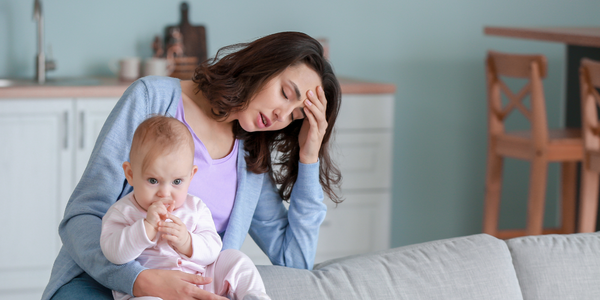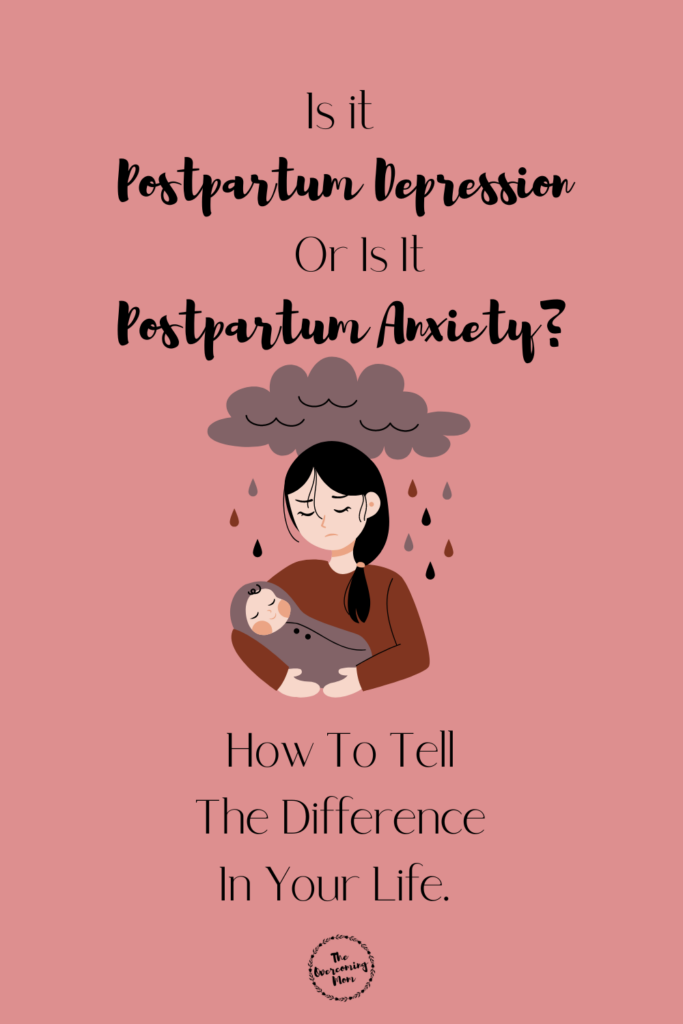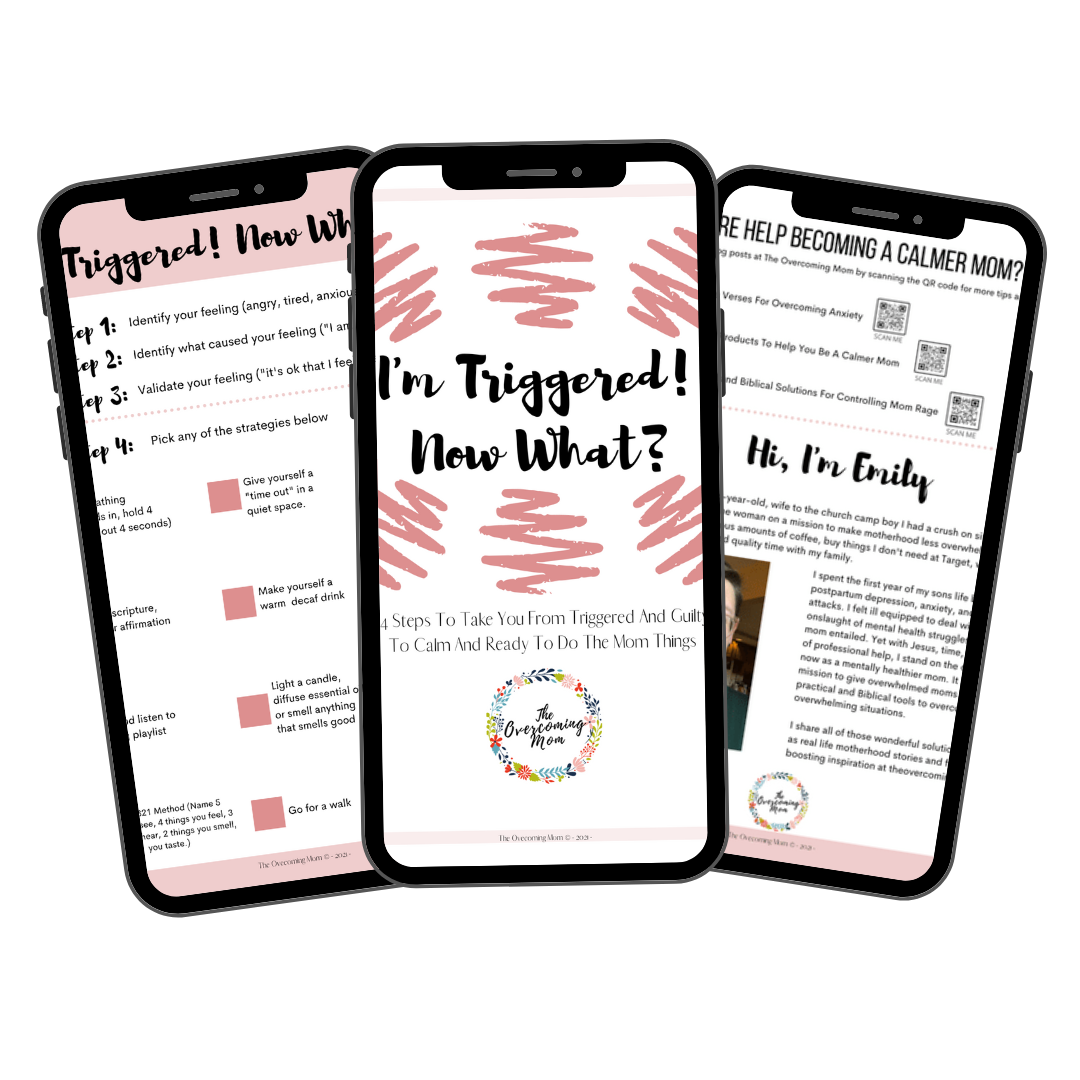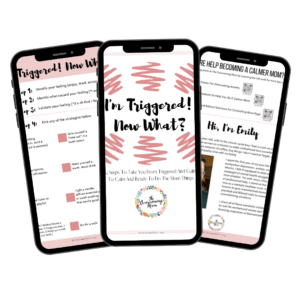This page may contain affiliate links. As an Amazon Associate I earn from qualifying purchases. If you want more information, please see my Affiliate Disclosure.

The postpartum period is a challenging time even for the most experienced mothers. Not only are you adjusting to and getting to know an entirely new human, but your brain and body chemistry undergo a massive metamorphisis. That coupled with sleep deprivation, potentially adjusting to multiple children, and the regular stress of life can be enough to tip anyone over the edge mentally. For many parents, this can result in the development of various perinatal mood disorders, including postpartum depression and postpartum anxiety. Perinatal mood disorders are the top complication of pregnancy and motherhood, yet our understanding of them is slim at best. In fact, many moms have no idea that postpartum anxiety, amongst other perinatal mood disorders, is even a thing. So when new moms begins to experience the symptoms of a potential mood disorder, they’re left without any prior knowledge to guide them. This in turn leaves a lot of new mothers without treatment.
Through my own struggle with postpartum depression and postpartum anxiety, I’ve come to learn that knowledge is power! When we understand the risk factors and what to look for in these mood disorders, we become empowered to advocate for ourselves. I truly do not want any mother to experience the confusion of knowing something is going on in your head, but have no clue what to do. So how can we tell the difference between postpartum depression and postpartum anxiety? What do you need to be looking for if you suspect you have one or the other? How can you get help?
Disclaimer
I am not a medical professional, nor do I claim to be one anywhere on The Overcoming Mom. I am simply a mom who has been through hell and back with my own stint of postpartum depression and postpartum anxiety. I’ve done a lot of research from actual medical professionals, and provided that in this article. I have credited where I have received that information within this article. In no way, shape, or form is this article meant to be used as a diagnosis tool. Please do NOT use this as a tool to self-diagnose. If you suspect you have postpartum depression or postpartum anxiety, please seek medical attention. At the end of this article I will also have resources on how you can get help.


Quick Overview of Postpartum Depression
According to the Cleveland Clinic, the following are some symptoms of postpartum depression:
- Feeling sad, worthless, hopeless or guilty.
- Worrying excessively or feeling on edge.
- Loss of interest in hobbies or things you once enjoyed.
- Changes in appetite or not eating.
- Loss of energy and motivation.
- Trouble sleeping or wanting to sleep all the time.
- Crying for no reason or excessively.
- Difficulty thinking or focusing.
- Thoughts of suicide or wishing you were dead.
- Lack of interest in your baby or feeling anxious around your baby.
- Thoughts of hurting your baby or feeling like you don’t want your baby.
Nobody really knows why postpartum depression happens. There’s some evidence that points to physiological changes as the cause of postpartum depression. Others may say that societal issues put excessive strain on new parents, which then causes it. The other outside changes we experience with becoming new parents can certainly play a role as well. Lack of sleep, body changes, sudden changes of routine, and potential trauma from pregnancy or birth could be culprits of postpartum depression as well. Having a family history of depression, or a personal history of depression can also put you at risk of postpartum depression.
Typically around 6 weeks, your healthcare provider will give you a postpartum depression screening questionnaire known as the Edinburgh Postnatal Depression Scale. Once that is given, though, little is usually done to check in on mothers in the postpartum period. Many mothers don’t experience postpartum depression symptoms until 3 or more months after birth. So if you notice signs of depression, even after your 6 week check screening, do not ignore that.
Treatment for postpartum depression includes taking medication, such as selective serotonin reuptake inhibitors (or better known as SSRI’s), talk therapy, and other mental health services such as support groups.
Quick Overview Of Postpartum Anxiety
According to the Cleveland Clinic, the following are symptoms of postpartum anxiety:
- Disrupted sleep.
- Increased heart rate or heart palpitations.
- Nausea or stomach aches.
- Being unable to breathe or feeling short of breath.
- Loss of appetite.
- Trouble sitting still.
- Muscle tension.
Emotional symptoms
- Inability to relax or keep calm.
- Racing thoughts, especially about worse-case scenarios.
- Obsessing over irrational fears or things that are unlikely to happen.
- Difficulty focusing or forgetfulness.
- Irritability.
- Feeling on edge or fearful.
Behavioral symptoms
- Avoiding certain activities, people or places.
- Being overly cautious about situations that aren’t dangerous.
- Checking things over and over again.
- Being controlling.
Many of the risk factors of postpartum depression and postpartum anxiety overlap. Such as having a personal or family history of anxiety disorders, a lack of social support, traumatic pregnancy or previous pregnancy, and others. Unlike postpartum depression, postpartum anxiety doesn’t have formal diagnosis testing. Typically diagnosis comes through stating your symptoms to a health care provider. Treatment for postpartum anxiety is about the same as postpartum depression.
There are also variations of postpartum anxiety that can effect some moms. Some of them being postpartum obsessive-compulsive disorder, postpartum panic disorder, and postpartum post-traumatic-stress disorder, and postpartum psychosis. Postpartum Support International has a fantastic resource page all about these.
Postpartum Depression vs. Postpartum Anxiety
If you go through the list of possible symptoms of postpartum depression and postpartum anxiety, you’ll see a lot of overlap. For the average person, that overlap can make understanding the mental changes you may be experiencing confusing.
One of the biggest differences between postpartum depression and postpartum anxiety is that postpartum depression has a formal diagnosis tool, while postpartum anxiety does not. Mostly this is because for a long time, medical professionals simply didn’t diagnose postpartum anxiety. Only recently has it become an actual diagnosable illness. This is why it is absolutely vital to seek medical attention if you have suspicions of having either one.
From personal experience, I find that postpartum depression and postpartum anxiety are like both sides of the same coin. There may be times when you will notice the hyper-vigilance that comes with postpartum anxiety, and other times when the opposite is true with postpartum depression. Some people may be experiencing postpartum anxiety, but instead of being hyper-vigilant, they may actually freeze up and do nothing. Consider your state of mind when experiencing these overwhelming symptoms. Does it feel as if your brain is a time bomb of information and responsibility, or does it not? Discussing these things with a healthcare provider can help you both come to a consensus.
How To Get Help
If you think you may have either postpartum depression or postpartum anxiety, please seek professional help. Whether that be from your family medical provider, OBGYN, or a mental health professional, seeking out professional help is absolutely the best route to take. Many moms do not seek out professional help because of the still existing stigmas around maternal mental health. Please remember that a true professional wants to help you, not shame you. If you feel shamed by one professional, then go to another. Keep going until you are heard!!
You can also get support through online support groups. Postpartum Support International provides many online support groups for a variety of people. You may be able to speak to healthcare providers in your area to see if there are local support groups as well.
When you are a new mom, finding a community of like-minded people is vital. I highly recommend seeking out other friends either through local mom groups, interest groups, the Peanut app, whatever way necessary. I have an article all about how to make mom friends as a stay at home mom right here.
Other Valuable Resources
- Rootd – This app is a free anxiety management tool. It has a fabulous little red “panic button” you press when a panic attack happens, and gives you real-time tips on how to make it though safely. There’s also lots of educational resources on managing anxiety throughout the app.
- Betterhelp – Is an online therapy service that makes therapy accessible and affordable for all people. They have a huge database of therapist with many specialties, and offer many ways to participate in therapy.
- Faithful Counseling – Is very similar to Betterhelp, but is a database of online Christian therapists. If you would prefer to receive therapy from a faith-based perspective, then this could be just for you.
- Postpartum Support International – Is a massive database for mothers experiencing postpartum mood disorder. They have a huge database of certified therapists all across the US, as well as online support groups.










